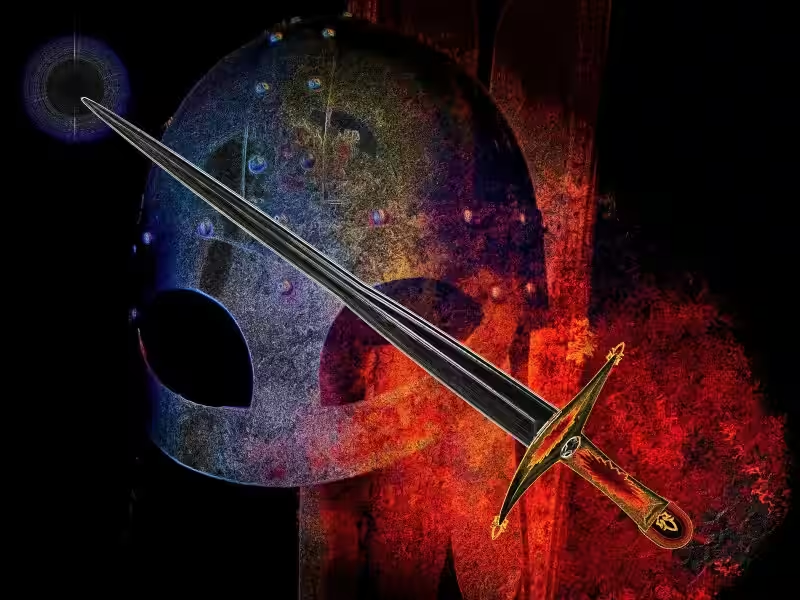Unlocking the Biblical Meaning of Crows: A Multifaceted Symbol

The biblical meaning of crows isn't a simple good vs. evil dichotomy. Instead, these birds possess a complex symbolism that shifts depending on the context, reflecting both God's unwavering care and the potential consequences of human actions. Understanding this multifaceted representation requires exploring various biblical passages and considering the cultural perspectives of the time.
God’s Provision: Crows as Symbols of Divine Care
The most prominent theme associated with crows in scripture is God's boundless provision and care for all of creation. Several passages highlight this theme, using the crow (or its close relative, the raven) as an example of God's sustenance extending even to the seemingly insignificant.
Consider Job 38:41, where God poses a rhetorical question: "Who provides for the ravens when they cry out? Your Father who is in heaven cares for them." This verse doesn't explicitly detail the crow's actions, but the simple act of the raven crying out implies a reliance on a higher power. The implication is clear: if God cares for ravens, creatures often associated with scavenging, He surely cares for humanity.
Furthermore, Psalm 147:9 reinforces this idea: "He gives food to the birds of the air and feeds the young ravens when they cry out." The image of young ravens crying out highlights their dependence, emphasizing God's role as the ultimate provider. This unwavering care isn't limited to humans; it extends to all living creatures, even those deemed unclean by some interpretations. The act of feeding, a basic necessity for survival, becomes a potent symbol of God's unfailing grace.
This imagery of the crow's survival is further emphasized by their behavior of food storing. This instinctual action reinforces the concept of divine planning and provision, showing that even the smallest details of creation are under God's watchful eye and care.
Uncleanness and Disobedience: A Warning from the Crow
In contrast to the positive depiction of divine provision, Leviticus designates crows as unclean birds. This designation isn't arbitrary; it carries significant theological weight.
Leviticus 11:15 lists the crow among birds considered ritually impure, symbolizing spiritual defilement and the potential consequences of sin and disobedience. The act of consuming these birds was forbidden, acting as a visible reminder of the need to maintain physical and spiritual purity. This isn't about the birds themselves, but about the internal state of the person consuming them. The crow, therefore, serves as a potent symbol calling for self-examination and repentance.
This connection between unclean animals and spiritual impurity is reinforced in other biblical passages. The symbolic weight given to uncleanness highlights the importance of maintaining a righteous life, free from the contaminating influences of sin. The avoidance of these birds represented a conscious effort to remain separate from the spiritual consequences of wrongdoing. The symbolic meaning of the crow, in this context, is one of warning against spiritual contamination.
Messengers of Guidance: Crows and Divine Direction
Beyond the themes of provision and uncleanness, crows also function as messengers of divine guidance in certain biblical narratives. Their role is most notably highlighted in the story of Noah's Ark. While not explicitly mentioned as a crow, the raven sent out by Noah returned with an olive branch, signifying the receding floodwaters and God's promise of new life.
While the raven and the crow are closely related and often conflated, this story underscores the capacity of these birds to convey crucial information, acting as agents of divine communication. Their ability to fly far and wide, coupled with their resilience and persistence, enhances the message – even in harsh circumstances, God's communication can be received. The crow's delivery of this crucial message emphasizes the importance of patience and unwavering faith in divine guidance, even when the path ahead is uncertain.
Resilience and Perseverance: The Crow’s Enduring Faith
The crow's ability to survive in harsh conditions also contributes to its complex biblical symbolism. Their resilience and tenacity are highlighted in certain interpretations. The crow's capacity to thrive in diverse environments – from scavenging in desolate landscapes to building nests in high trees – reflects the enduring nature of faith.
Isaiah 34:11, mentions the "owl and the raven" dwelling in the desolation of Edom, a land ravaged by God's judgment. The presence of these birds, associated with harsh environments, isn't necessarily a negative symbol; rather, it could be seen as reflecting the capacity for life and persistence even amidst destruction. The crow, in this context, symbolizes the unwavering nature of faith, capable of enduring even in the face of hardship. This enduring nature serves as a potent reminder that despite adversity, faith and perseverance can lead to overcoming challenges.
Conclusion: A Nuanced Symbol in the Biblical Landscape
In summary, the biblical meaning of crows is rich and nuanced. It's not a simple case of good or bad, but a multifaceted symbol reflecting God's provision, the consequences of disobedience, divine guidance, and the enduring power of faith. Understanding these varying interpretations allows for a deeper appreciation of the crow's symbolic role in biblical narratives and their ongoing relevance to faith today. The crow's presence urges believers towards reflection, repentance, and steadfast faith in the face of life's inevitable challenges.
Frequently Asked Questions: Biblical Meaning of Crows
What is the overall biblical meaning of crows?
Biblical interpretations of crows are multifaceted, not simply positive or negative. Their symbolism depends heavily on context. Sometimes they represent God's provision and care for all creation, even seemingly insignificant creatures. Other times, they symbolize impurity and the consequences of disobedience, serving as a warning against spiritual contamination. They can also act as messengers of divine guidance and represent resilience in the face of adversity.
Do crows always represent something negative in the Bible?
No. While Leviticus lists crows as unclean birds, associating them with impurity and the potential consequences of sin, other passages highlight God's care extending to them, emphasizing His provision for all of creation (e.g., Job 38:41, Psalm 147:9). Therefore, their meaning is context-dependent.
What is the significance of crows feeding Elijah in 1 Kings?
The story of Elijah being fed by ravens in 1 Kings 17:4-6 primarily emphasizes God's power and provision. God uses even "unclean" creatures to sustain His chosen ones, highlighting His omnipotence and care, rather than assigning a specific meaning to the crows themselves. The narrative focuses on God's intervention, not the inherent symbolism of the crow.
Are crows depicted as messengers in the Bible?
While not explicitly labeled as messengers in the same way as angels, crows, particularly in the story of Noah (though ravens are often mentioned here), can be interpreted as conveying crucial information and God's direction. Their persistence in carrying out this role underscores the importance of faith and receiving divine guidance.
What does the crow's ability to survive harsh conditions symbolize?
The crow's resilience in difficult environments symbolizes perseverance and enduring faith in the face of adversity. It serves as a reminder that even amid destruction, faith can lead to overcoming challenges.
Is there a single, definitive symbolic meaning for crows in the Bible?
No. Unlike some animals with clearly defined symbolic roles (e.g., the dove), the crow's representation is nuanced and context-dependent. Interpretations often stem from cultural associations of the time rather than direct pronouncements within the biblical text. Attributing a single meaning risks misinterpreting the crow's role in various biblical narratives.








